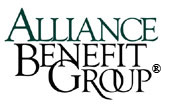Commonly Asked Questions About HSAs
|

|
|
|
HSA Frequently Asked Questions
What is a Health Savings Account (“HSA”)?
A Health Savings Account allows individuals to pay for current health expenses and save for future qualified medical and retiree health expenses on a tax free basis.
How can I get a Health Savings Account?
Consumers can sign up for HSAs with providers which will generally be insurance companies and banks. Employers are likely to set up plans for employees as well in which case the employer will generally be arranging the HSA for the employee.
Who is eligible for a Health Savings Account?
To be eligible for a Health Savings Account, an individual must be covered by an
HSA Qualified High Deductible Health Plan (HDHP), must not be covered by other
health insurance (does not apply to specific injury insurance and accident,
disability, dental care, vision care, long-term care), is not enrolled in Medicare, and can’t be claimed as a dependent on someone else’s tax return.
What Is a “High Deductible Health Plan” (HDHP)?
In 2012 a HDHP is a health insurance plan with a minimum deductible of $1,200 (self only coverage) or $2,400 (family coverage).
The annual out-of-pocket (including deductibles and co-pays) cannot exceed $6,050 (self only coverage) or $12,100 (family coverage).
In 2013, a HDHP is a health insurance plan with a minimum deductible of $1,250 (self only coverage) or $2,500 (family coverage).
The annual out-of-pocket (including deductibles and co-pays) cannot exceed $6,250 (self only coverage) or $12,500 (family coverage).
HDHPs can have first dollar coverage (no deductible) for preventive care and higher out-of-pocket (co-pays and coinsurance) for non-network services.
^ TOP
Who can contribute to a Health Savings Account?
Contributions to HSAs can be made by either the employer or the individual, or both. If contributions are made by the individual, it is an “above-the-line” deduction. If contributions are made by the employer, it is not taxable to the employee (excluded from income). Contributions can also be made by others on behalf of an eligible individual and deducted by the individual. All contributions are aggregated.
How much can I contribute to a Health Savings Account?
The maximum contribution for 2012 is $3,100 for an individual and $6,250 for a
family. If the account Beneficiary is 55 or older they can contribute an
additional $1,000 to their account. These dollar limits will be adjusted for
inflation each year. For 2013 the maximum contribution is $3,250 for an
individual and $6,450 for a family and the catch-up contribution will be $1,000.
Do Health Savings Account funds roll over year after year and get invested?
Yes, the money invested in a Health Savings Account rolls over year after year.
Who has control over the money invested in a Health Savings Account?
The individual has control over the assets in their account.
^ TOP
What happens to the money in a Health Savings Account after you
turn 65?
Once you turn 65, if you enroll in Medicare, the money in your HSA can be used for health expenses and to pay certain insurance premiums like Medicare Part A & B. It cannot be used to purchase a Medigap policy. It can also be used for any other
qualified medical expenses. If used for
qualified medical expenses, the amounts come out of the account tax free. If used for other expenses, the amount received will be taxable
(however the tax penalty will no longer apply). If when you turn 65 you do not enroll in
Medicare and are otherwise a qualified individual per section 223 of the
Internal Revenue Code you may continue to contribute to your HSA account. At the
point you elect to enroll in Medicare you can no longer contribute to your HSA.
Can you roll the money in a Health Savings Account over into an IRA?
You cannot roll the HSA funds over into an IRA. They will stay in the HSA or be rolled into another HSA.
What can distributions from the HSA be used for?
The amounts can be distributed for either qualified medical or other expenses. If the amount distributed is used for qualified medical expenses, then the distribution is tax free. If the amount distributed is used for other than qualified medical expenses, the amount distributed will be taxed and, for individuals who are not disabled or over age 65, subject to a
20% tax penalty.
Are dental and vision care qualified medical expenses under a Health Savings Account?
Yes, as long as these are deductible under the current rules. For example, cosmetic procedures, like cosmetic dentistry, are generally not deductible and would not be considered qualified medical expenses.
What is the definition, or eligibility criteria, for qualified preventative health care expenses covered by HSA policies?
Treasury and IRS recently issued guidance on this topic.
^ TOP
Can anyone make catch-up contributions to a Health Savings Account?
Accountholders who are 55 or older, who are also covered by an HDHP can make an
additional catch-up contribution to their own account. The maximum “catch-up”
contribution to an HSA is $1,000.
Have a question about Health Savings Accounts?
Email us: info@abgemail.com
^ TOP
Source: U.S. Treasury
|


